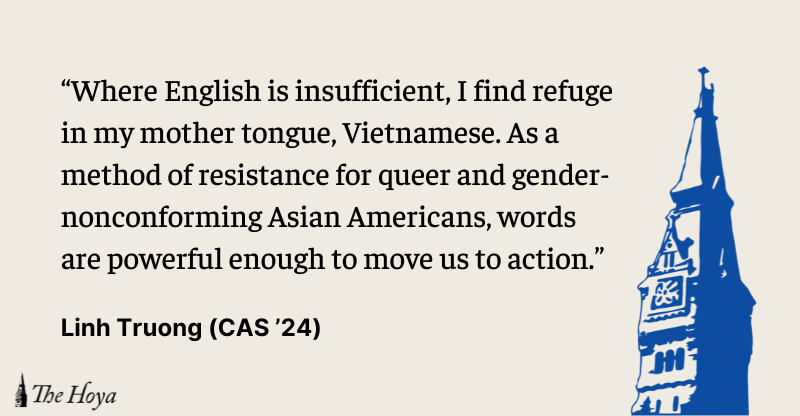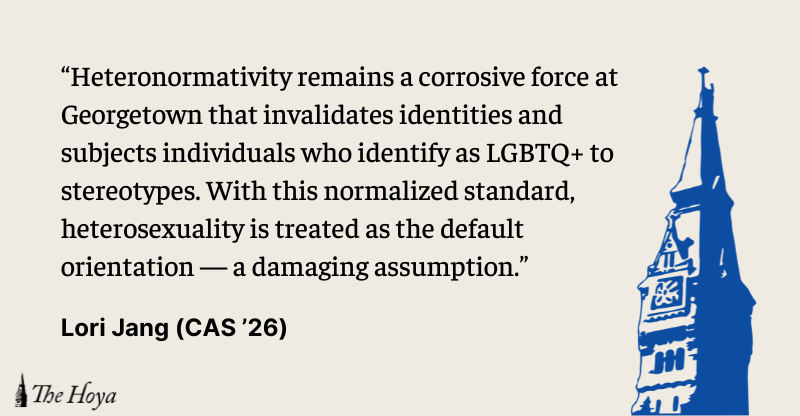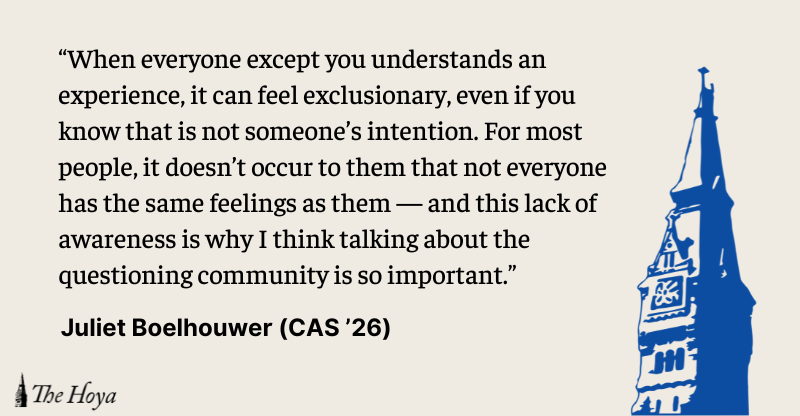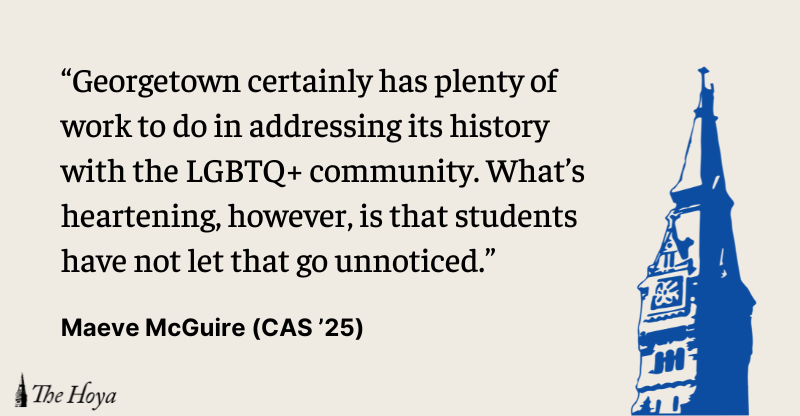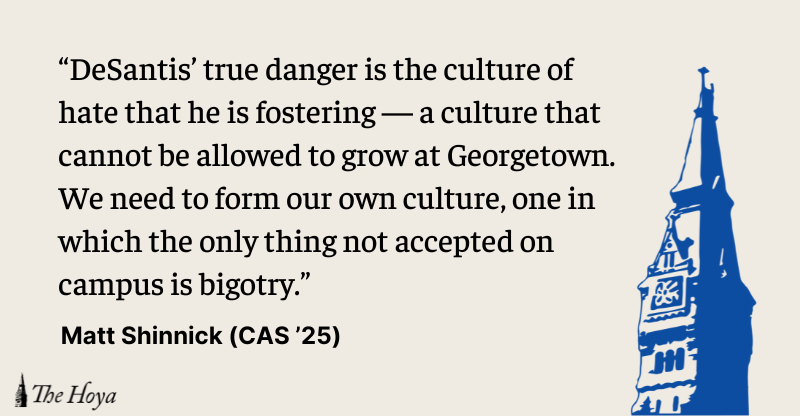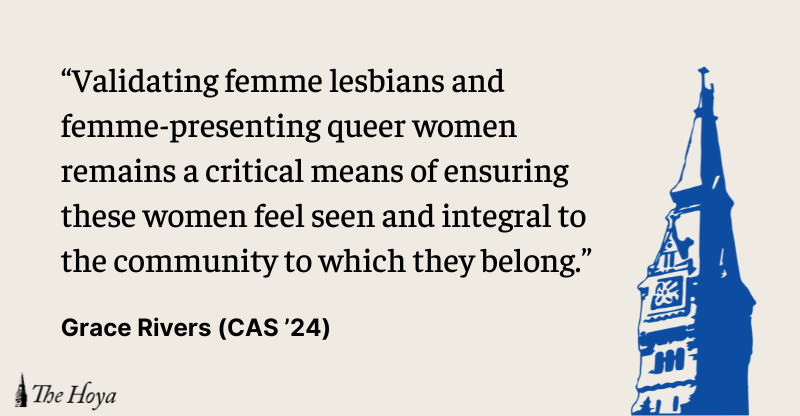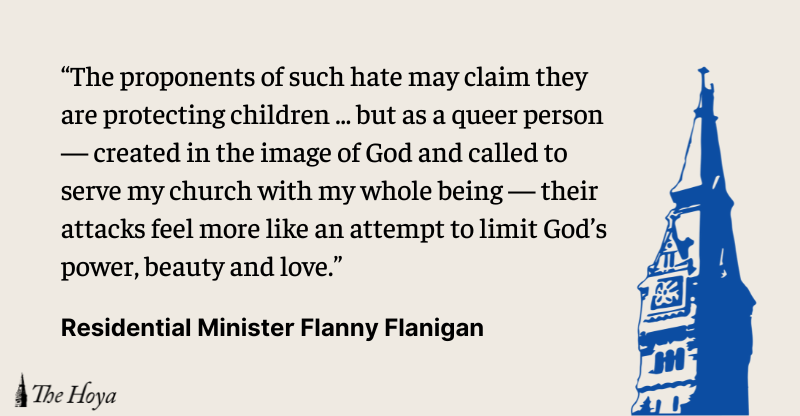I hate receiving compliments — I can never find the right words to respond. Maybe it’s because my Vietnamese American family shows affection through every medium but words: plates of freshly cut fruit, neatly folded squares of laundry or tickets to the latest blockbuster are the ways my parents prefer to say “I care for you,” “I’m sorry” and “let’s try again.” Because actions spoke more than words, I grew up without ever learning the language of niceties and praise.
Of all compliments, there is one I despise the most: “girlboss.” Besides the problematic assumption that a boss is inherently a man, I am not girl-ing (nor boss-ing) — I identify as nonbinary, and although I have never felt more true to myself, my vocabulary falls short when I face my family.
As the eldest child of immigrants, I’ve always known I was the vessel for my parents’ hopes and dreams. It’s a full-time gig with endless part-time hustles: the caretaker, the translator, the therapist, the retirement fund, the mediator. Since coming to Georgetown University, a predominantly white and historically anti-LGBTQ+ institution, I’ve only become more conscious of these responsibilities and the obstacles set in front of me — and how I reckon with them, if not as the eldest daughter.
Identifying as nonbinary has forced me to confront my language gaps and ask myself which words express who I truly am. While I am hesitant to be called “miss,” “ma’am” or “my girlfriend,” I know that being a “child” and a “sibling,” the only gender-neutral options, do not inform my lived experiences the way “daughter” and “sister” have. Where English is insufficient, I find refuge in my mother tongue, Vietnamese. As a method of resistance for queer and gender-nonconforming Asian Americans, words are powerful enough to move us to action.
In the three languages I know, pronouns can exist on intersecting hierarchies of gender, relation and age.
In Mandarin, “tā” (X也, 她, 他) is gender-neutral when spoken; likewise, referring to yourself with “wǒ” (我) expresses no gender. However, in situations where one is expected to recognize another’s age or position, honorific pronouns demonstrate respect. “Nǐ” (你), which means “you,” turns into “nǐn” (您) when you’re referring to an elder, professor or mentor. When placed side by side, the lack of relational aspects in English pronouns contrasts with the values of collectivism and filial piety in Mandarin.
In Vietnamese, pronouns capture gender and relation. While some are gender-neutral — like “con” and “em,” which translate to child and younger sibling — other pronouns like “chị” and “anh” translate to older sister and older brother, respectively. The Vietnamese trans and gender-nonconforming community has combined “chị” and “anh” to create the gender-neutral pronoun “chanh,” which also means lemon. Lý Thuy Nguyễn, a bilingual queer scholar, has marveled at the metaphorical image of “chanh”; the sharp and sour fruit for which it is a homonym speaks to the joy and stubbornness of Vietnamese queer resistance. Despite the conformity it pushes, language moves and flows with the liberation of its speakers.
Although the gender binary can be tangibly enforced through clothing and hobbies, language was at the forefront of my gender identity formation. My family let me wear tomboy-ish clothes and go on camping trips with my dad as long as I knew my position as a “chị.”
Queerness and gender nonconformity cannot be removed from cultural contexts. “Chanh” is not the equivalent of “they” — the word expresses who I am. That said, “chị” is still deeply rooted in my everyday life. Being a “chị” is laden with responsibilities and expectations — the title carries more weight for me than “sister” or “girlboss” ever will. I knew from a young age that I was my family’s future, a duty I’ve resented at times and deeply cherished at others.
When I look at myself, what reflects back is not a girl, but generations of failures, hopes and dreams.
For me, being nonbinary and being a “chị” have never been separate worlds. I can’t look into my brother’s eyes and tell him I am anything but his “chị.” Unlike in English or Mandarin, there is no true translation for “I” and “you” in Vietnamese — even if they’re not related to you, everyone is called “chị,” “anh,” “chanh” or another familiar term. You are always someone’s sibling, cousin or friend; a stranger is called family.
As a rising senior, I am excited to be a “chị” to other queer and Asian American Georgetown students. Even when we cannot find the right words to say so, we must care for one another like family.
Linh Truong is a rising senior in the College of Arts & Sciences.


